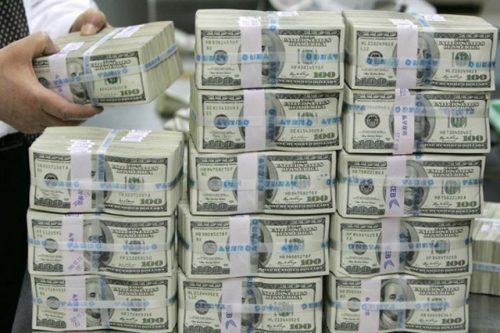Nigeria’s foreign exchange (FX) reserves recorded a significant decline, shedding $359.81 million within a single week to settle at $40.56 billion as of January 13, 2025.
The shedding of the FX reserves follows a short-lived high of $40.91 billion recorded on January 7, 2025, and marks a steady downward trend in the reserves.
Latest data from the Central Bank of Nigeria (CBN) shows the fluctuating nature of the country’s external reserves, which serve as a critical buffer for stabilising the economy and maintaining investor confidence.
At the end of 2024, Nigeria’s foreign reserves stood at $40.88 billion, demonstrating a relatively stable position as the country entered the new year.
Early January, there was a modest uptick in reserves, with the level reaching $40.92 billion on January 6, 2025. This increase, however, was short-lived as reserves peaked at $40.91 billion on January 7.
The decline began immediately afterwards, signalling a persistent downward trajectory. By January 13, reserves had fallen by 0.88 per cent from their January 7 peak, representing a loss of $351.89 million within six days.
On January 8, the reserves dropped to $40.85 billion, reflecting a daily reduction of $60.31 million. This marked the start of a steady erosion of the gains achieved late last year and earlier in the month this year. The downward trend continued on January 9, when reserves dipped further to $40.80 billion, a daily drop of $49.15 million. By January 10, reserves declined more sharply to $40.75 billion, losing $50.35 million compared to the previous day.
The most significant decline occurred between January 10 and January 13, when reserves fell to $40.56 billion. This three-day period saw a cumulative loss of $192.39 million, highlighting a consistent and troubling pattern of depletion. Overall, the reserves experienced a 0.88 per cent decline in one week.









